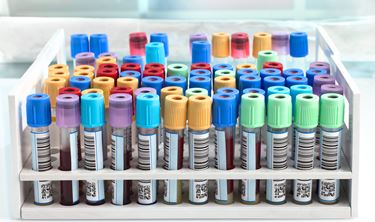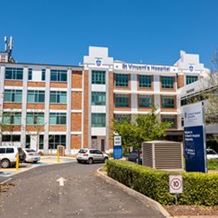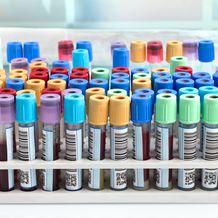Patient resources Blood Transfusions

- Home
- Our Hospitals
- St Vincent’s Private Hospital Toowoomba, QLD
- Patient Information
- Blood Transfusions
Important information for all patients
Please read prior to admission
PDF file for download/print
Why do I need a blood transfusion?
You may need a blood or blood component transfusion due to:
- major surgery
- pregnancy related blood loss
- to aid in the treatment of certain medical problems such as cancer, blood disorders or kidney disease
- in an emergency situation such as after a road accident
What is a blood component transfusion?
A blood component transfusion involves the transfusion of a ‘component’ of blood such as red blood cells, platelets and fresh frozen plasma and cryoprecipitate.
Red Blood Cells contain haemoglobin which carries oxygen around your body, and are transfused if haemoglobin levels are low (anaemia) or in the case of a large blood loss.
Platelets help blood to clot and may be given to prevent or control bleeding when platelet levels are low or do not work properly.
Fresh Frozen Plasma and Cryoprecipitate contain clotting factors which work with the platelets to seal wounds and may be used in emergencies to help stop bleeding.
Where does transfusion blood come from?
The Australian Red Cross Blood Service collects blood from suitable donors and tests all blood to ensure its safety.
What are the benefits of having a blood transfusion?
Blood transfusions can:
- improve the quality of life for people with certain medical conditions
- relieve symptoms of anaemia such as dizziness, tiredness and shortness of breath
- save your life
Are there risks with having a blood transfusion?
Blood transfusion is not risk free. As with all medical procedures, complications may occur. All donated blood is screened and donors are not accepted if they have been in contact with a risk eg. bacterial infection.
Strict patient identification, checking procedures and strict monitoring of laboratory processes decrease the risk of reactions caused by blood not being matched properly.
What type of reactions might occur?
Allergic reactions include:
- rash
- itching
- dizziness
- headache
- difficulties breathing
Rate of risks
Headaches, mild fever, itching and hives - 1 in 100
Hepatitis B - 1 in 633,000
Hepatitis C - 1 in 6.3 Million
HIV (AIDS) - 1 in 9.2 Million
Are there alternatives to having a blood transfusion?
Improved surgical techniques have decreased excess bleeding and the need for transfusions.
Alternatives may include:
- treating anaemia before planned surgery
- collecting blood lost during surgery and returning it to you
- Please discuss these options with your doctor as they are not suitable for everyone
What if I do not agree to a transfusion?
Any concerns you have with blood transfusions need to be discussed with your doctor. Before any transfusion you will be asked for your consent, or permission. You should understand the reasons, risks and benefits and be able to discuss any objections or concerns you may have with your doctor.
However, in the case of an emergency, there may not be time to discuss the treatment prior to the transfusion.
If you have any objections to receiving blood for any reason, please speak to your doctor.
What is my role?
Before transfusion:
- ensure that you understand why you need the transfusion
- check that the risks and alternatives have been discussed with your doctor and that all of your questions have been answered
During transfusion:
- a nurse will be closely monitoring you for any reactions to the transfusion
- please inform the nurse of any symptoms or concerns that you might have
- for further information for the Australian Red Cross Blood Service visit mytransfusion.com.au
You will be closely monitored throughout the transfusion. However, please tell your nurse if you
experience any symptoms.




